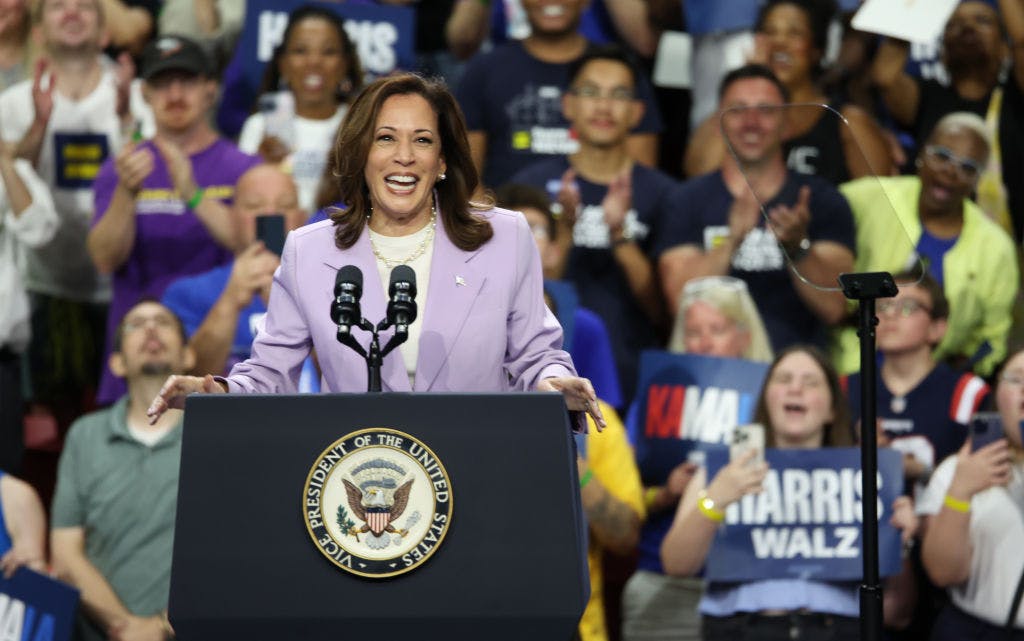Kamala Harris aims to crack down on price-gouging, kickstarting a makeover of her economic image
Who is really to blame for inflation anyway?
Vice President Kamala Harris will reportedly back a ban on price gouging on food and groceries, a policy proposal that pushes the blame of high prices away from the current administration and onto Corporate America.
Price gouging is loosely defined, but is essentially when companies raise prices on essential items to unfair levels. It's not clear what the parameters of Harris' ban will be, or if she plans to execute it via legislation or a perhaps a rule from the Federal Trade Commission.
Harris is set to lay out her economic policy platform in greater detail on Friday. Everyone is confused about the economy, and it’s one of the defining issues of this election.
Americans have grappled with high prices for several years now, and despite signs that the economy is in good health, it's got people in a bad mood. That's not what you want as an incumbent.
Polls have reported that voters have generally preferred Donald Trump when it comes to the economy this election cycle, though it appears Harris is making some inroads on that front. Republicans are more likely to blame the government for inflation while Democrats are more likely to blame corporate greed, according to a June survey from Axios.
Presidents generally get outsized blame for economic outcomes, including inflation. Some things they control directly or indirectly, like tariffs or government spending, can be inflationary. But most of the factors that have driven this inflationary episode, like the pandemic and the war in Ukraine, aren’t really in their control.
Others have blamed the Federal Reserve, which acts independently from the White House, and say the central bank may have been too slow to act to contain hot inflation.
Democrats like Harris tend to blame corporations that raised prices by more than their costs grew.
There might be some truth to that. A January 2023 study from the Fed of Kansas City showed that corporate markup growth contributed for more than half of inflation in 2021, “a substantially higher contribution than during the preceding decade.” It’s also true that corporate profit margins haven’t been this good since the 1950s.
Companies like PepsiCo and Kellogg increased their prices by double digits in the past two years, offsetting their own rising costs and widening their margins. Those companies have slowed down increases in recent quarters as consumers pulled back on their products, often opting for a private label.
The blame game isn't new. Before the Super Bowl, the White House posted a video featuring President Biden sitting next to a table stocked with snacks, calling on companies to put a stop to "shrinkflation."
"The American public is tired of being played for suckers," he said.
